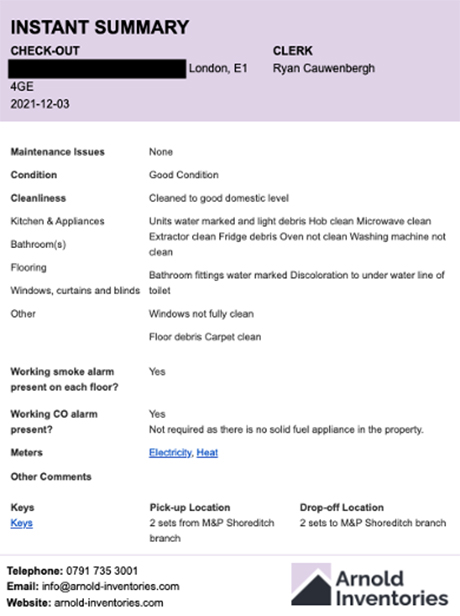What is a Section 21 Notice?
A section 21 notice is an eviction order informing a tenant they must vacate a premises. For landlords, the benefit of serving a Section 21 Notice is that they do not need to provide a specific reason for evicting their tenants, as long as the tenant is informed at least 2 months prior to the date they need to vacate the premises.
In regular circumstances a landlord can serve an eviction notice due to specific reasons such as rent in arrears, damage to the property, or any other breach of tenancy, whereas a Section 21 Notice can be served without reason or explanation if the landlord chooses.
The UK government is currently debating whether to abolish Section 21 Notices altogether, although there is no set date when this will come into effect. Until such a time, landlords are free to regain possession of their property using this type of notice.
What do Section 21 Notices Mean for Landlords?
Section 21 Notices have been a part of UK law since 1988, and give any landlord the power to evict either single and joint tenants from their property with a 2 month notice period.
What this means for landlords is that you can take back possession of your property for any reason that is not considered a breach of contract by your tenant. For instance, if you wish to move into your rented property or change the property type, such as converting a rented home into business, you can serve a Section 21 notice to your tenants without providing a reason. Be aware that you must comply with certain laws related to Section 21 in order for them to be legally admissible.
Restrictions on serving a Section 21 Notice include:
- You cannot serve this type of notice to a tenant that is on a fixed-term contract.
- You must provide at least 2 months notice to your tenant, taking into account postage delivery time.
- Your Section 21 Notice must include all information provided by the government’s 6A Form.
When Should I Serve a Section 21 Notice?
Your decision to serve a Section 21 eviction notice is entirely up to you and your personal circumstances. As mentioned above, there are many reasons you may need to serve such a notice, and provided you do not attempt to evict your tenants during a fixed term contract you can serve this notice at any time.
Here is a common example of Section 21 Landlord Notices being served:
- Tenant A has been living at a property for 3 years.
- They initially signed a fixed-term agreement that lasted for 2 years, at which point their tenancy would be provided on a monthly basis as a periodic tenancy agreement.
- After renting out this property for 3 years the landlord has been approached by a local laundrette, who have requested to rent the property for their business as it is in a prime location for students and business from other locals, and there are no competitor laundrettes in the area at present.
- After a discussion with the business owner, the landlord has decided they can charge far more rent to a profitable business than a single renter.
- The landlord makes the decision to turn their rented property into a business premises for the laundrette.
- At this point the landlord serves the tenant a Section 21 eviction notice, giving them a 2 month notice period to vacate the premises.
This is just 1 example of why a landlord may serve a Section 21.
How Do You Serve a Section 21 Notice?
Your first step is to fill in the Section 21 Notice template with all relevant information. Once this form has been signed and completed you can send it to your tenant, at which point they must also acknowledge and sign the document.
Bear in mind that each Section 21 Notice comes with a 2 month notice period, and this period should begin at the point the tenant receives the notice. As such, you should not begin the notice period from the day you signed the document if delivering by post, as the document may not arrive with your tenant for several days after it was sent by you.
Can a Section 21 Notice be Served by Email?
Serving a Section 21 eviction notice by email should be avoided unless this is as a proof copy sent after a letter, you should also check your tenancy agreement as there may be stipulations that state notice can only be served by letter.
What Happens if a Tenant Does Not Leave After a Section 21?
If your tenant refuses to leave after their 2 month notice period, then you can apply to the local county court for a possession order (local to the related property), otherwise known as making a claim for possession.
If a tenant still refuses to leave then court ordered bailiffs will attend the property to force their removal.
This is a distressing process for both the landlord and tenant, and should be avoided whenever possible. For this reason, it is important to treat tenants with compassion and understanding from the moment an eviction notice is served to avoid any unnecessary delays or hardships.
Restrictions on Serving a Section 21 Notice
There are a number of restrictions to serving eviction notices like a Section 21, including:
- A Section 21 Notice cannot be issued within 4 months of a tenancy starting, or before a fixed-term period has ended, unless you have included a clause within the contract that states this.
- The property is an HMO (House in Multiple Occupation) property that does not have a relevant HMO licence.
- Your tenant’s deposit has not been placed in a deposit protection scheme if the tenancy began after April 2007.
- You have been served an improvement notice by the council in the last 6 months.
- The council has informed you they will be performing upcoming emergency works or repairs on the property in the last 6 months.
- You owe the tenant repayment of unlawful fees or deposits.
- You have not provided the tenant a copy of the property’s Energy Performance Certificate before their move-in date.
- You have not provided the tenant a copy of the ‘How to Rent’ guide before their move-in date.
- You have not provided the tenant a copy of the current gas safety certificate for the property, if applicable.
As a landlord, it is your responsibility to ensure that all relevant documents are provided to a tenant before their occupancy, and deposits are placed within a deposit protection scheme. Failure to do so may result in a loss of eviction rights, such as the ability to serve a Section 21 notice.
Free Section 21 Notice Template
Download your free Section 21 eviction Notice Template now.
It is important to remain compliant with these regulations, as even something as simple as a spelling mistake on your notice could invalidate the document. By filling out the blank spaces with all relevant details, you can ensure compliance with UK regulations regarding serving a Section 21 notice.
Arnold Inventories has provided this FREE Section 21 eviction notice for all users.
Choose Arnold Inventories as Your Trusted Partner
Arnold Inventories offers professional and reliable inventory services for landlords. With our attention to detail, accuracy, and commitment to customer satisfaction, we ensure that landlords have the peace of mind they need.
We also offer flexible scheduling options and quick turnaround times, making the process seamless and hassle-free, taking the stress out of renting out your property!
Choose Arnold Inventories as your trusted partner for comprehensive and dependable inventory reporting.
Get Started Today
Contact Arnold Inventories today to schedule your Check-In Inventory Report, and get reassurance that the condition of your property has been thoroughly documented prior to a new tenant moving in.
Give our friendly team a call on 020 4579 9597, or fill out our online contact form, and we will get back to you as soon as possible.
Frequently Asked Questions
What is Included in a Section 21 Notice?
A Section 21 eviction notice has a standardised set of information that must be included to be valid. Required information:
- Full name of tenant
- Rental property address
- Date the notice was served
- Date the tenant is expected to vacate the property
This information must be included and accurate. Ensure there are no mistakes in your Section 21 Notice.
Why Do I Need a Section 21 Notice?
You can use a Section 21 Notice to evict a tenant that is not on a fixed-term contract, or if they are on a tenancy with no end date such as a periodic tenancy.




0 Comments
Leave A Comment